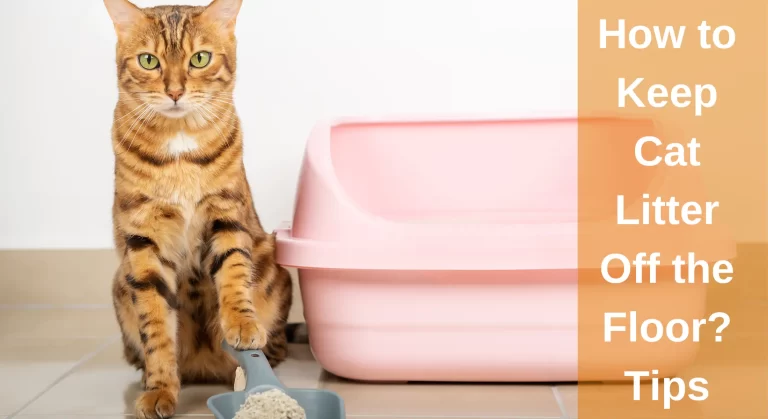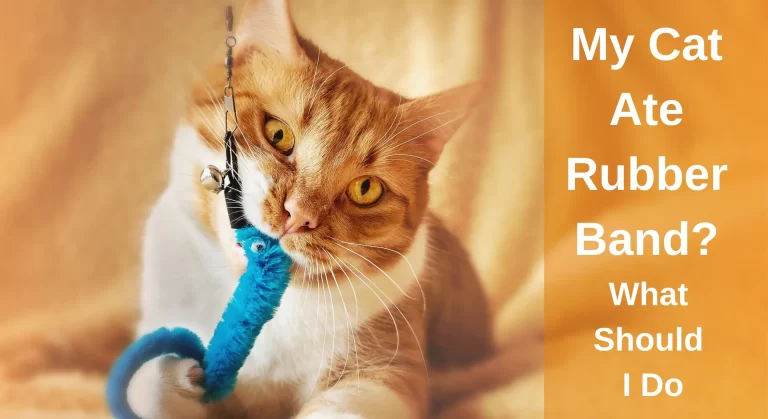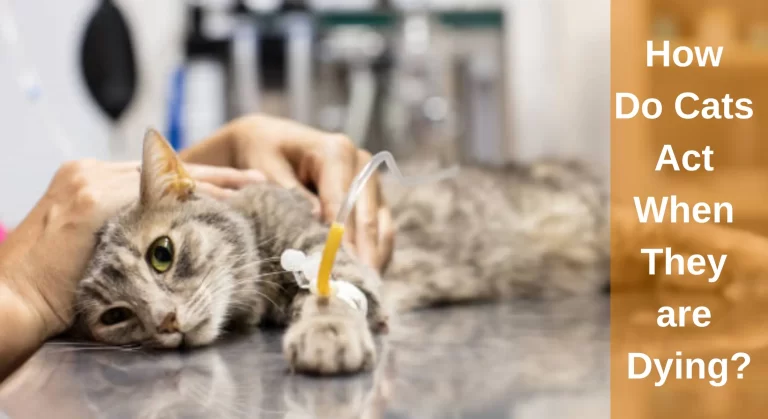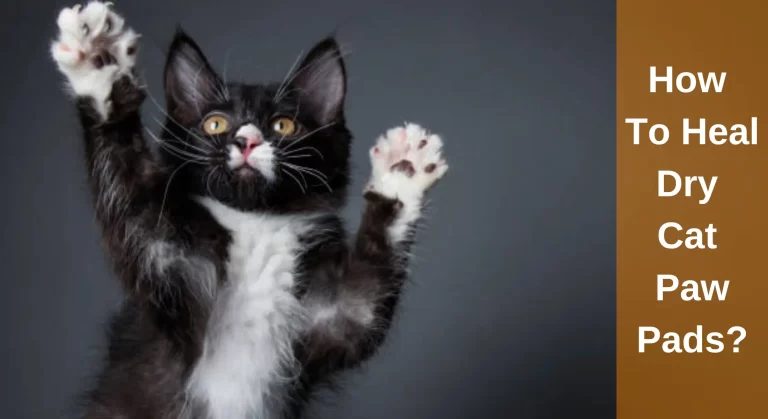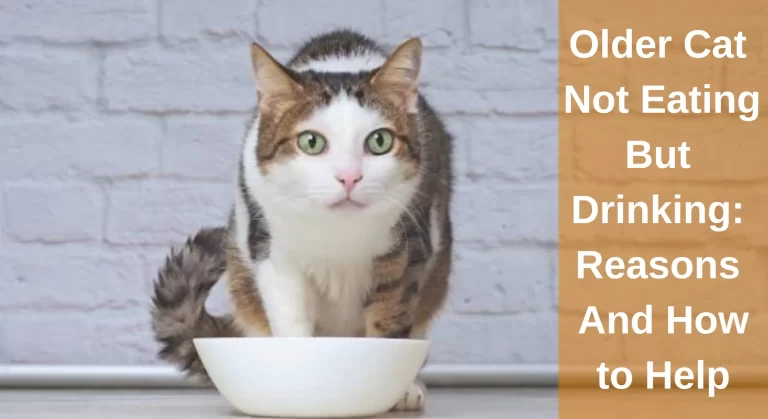Why Is My Cat Sneezing – Reasons, Symptoms And What To Do?
When your cat sneezes frequently, you might be concerned that there is an underlying health problem. In most cases, cat sneezing causes are not fatal and are generally treatable or manageable by a veterinarian. A cat’s propensity for sneezing heavily relies on the following; How much, how often, when, and whether they have any sneezing-related symptoms such as discharge from the nose, loss of appetite, Lethargy, severe drooling, fever, streaming eyes, or weariness. These signs and symptoms might point to one or milder to more severe diseases.
Cat sneezing can result from various factors, including environmental irritants, allergies, respiratory infections (Feline herpesviruses and feline caliciviruses commonly cause persistent sneezing in cats), or the ingestion of foreign objects. Smoking may also be the cause of your cat’s repeated sniffles if a guest has been smoking. Occasional sneezing is normal, but persistent or severe episodes may indicate an underlying issue. It’s advisable to observe other symptoms, seek veterinary advice for a precise diagnosis, and address the specific cause of your cat’s well-being.
Discovering the precise cause of the “why is my cat sneezing” ailment might be distressing. Even though sneezing seldom indicates a severe medical problem, you should know its causes and when your cat needs to see a physician.
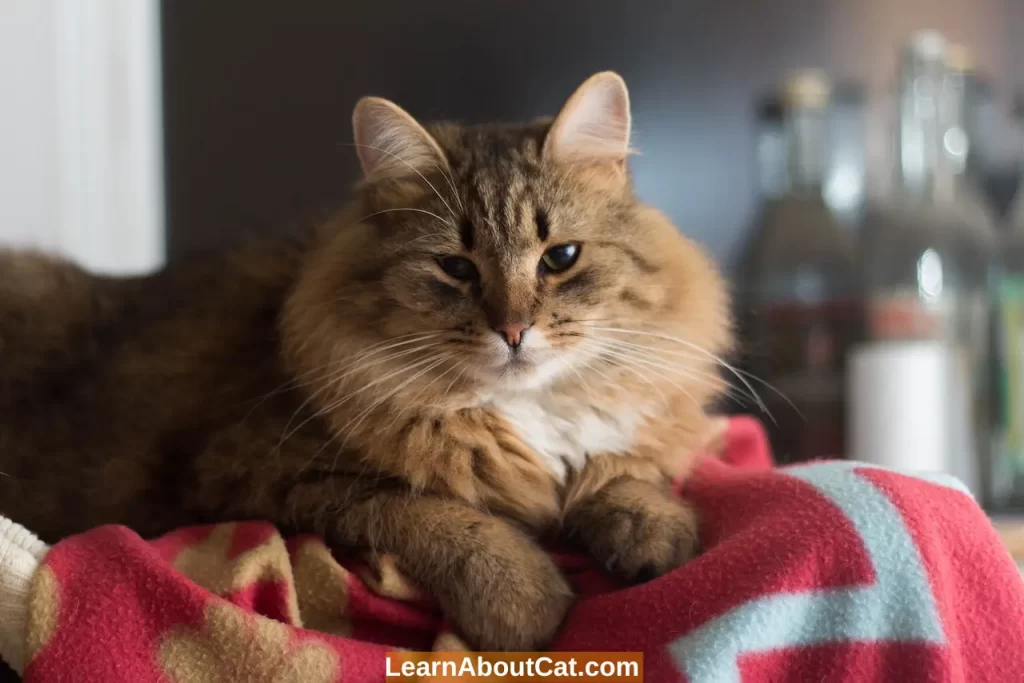
What are the Causes of Cat sneezing?
Sneezing is a natural biological process that rarely occurs. There is nothing abnormal about a cat sneezing occasionally. However, it’s unusual for a cat to sneeze multiple times a day for days.
If your cat sneezes immediately after eating and occasionally even when they smells the food dish, it can be allergic to a component of the new cat food. Rarely is sneezing the only indication of an upper respiratory infection.
Sneezing that persists, or other symptoms accompany that should be checked out by our veterinarians as soon as possible. Here are some of the main causes why cats sneeze:
1. Inhalation of a Foreign Material
Inhalation of a Foreign ObjectIt is common for cats to get foreign objects lodged in their noses due to their curiosity.
- An object such as lint, grass, or hair.
- Pollen, dust, and other allergens can be inhaled through the air.
- Particles such as smoke and dust are airborne.
A cat’s natural reaction to inhaling these particles is to sneeze to expel them. Make an appointment at our veterinary clinic as soon as possible if sneezing does not relieve the lodged material.
2. Respiratory Infection
Sneezing in cats is caused by a variety of upper respiratory infections, just as humans suffer from such infections. There are viruses, pathogens, and bacteria that cats can contract in order to cause these diseases, or they can suffer from allergies or colds and start sneezing.
Symptoms of upper respiratory infection (URI) in cats include:
- Frequently sneezing
- Coughing or Swallowing
- Discharging from the eye(yellow, green, or bloody)
- Diarrhea
- Dehydration
- Loss of Appetite
- Fever and Lethargy
- Enlarged lymph nodes
It is important to take your cat to the veterinarian for an examination if she is sneezing a lot or showing other signs of illness. There is a possibility that she has developed a respiratory infection, which is quite common among cats. She should be able to return to normal after taking a dose of antibiotics.
3. Feline Herpesvirus or FHV
Feline Herpesvirus, or FHV, is cats’ most prevalent respiratory infection. Approximately 80-90% of cats are infected with it.
Feline herpes flare-ups are most commonly caused by stress, but other illnesses can also contribute. It is possible that your cat has feline herpes that is flaring up right now if she is frequently sneezing.
Herpesvirus infections in cats are lifelong, even with emerging research suggesting existing medications may help.
4. Bacterial Infections
Observing your cat sneezing excessively and emitting yellow or green discharge is a sure indication of bacterial infection.
It is rare for bacterial infections to act alone in cats; they almost always act in coordination with respiratory viruses or other medical conditions that damage the nasal passages. Because bacteria are always opportunistic, they exploit weak barriers that usually protect cats from such attacks.
5. Neoplasia
Neoplasia (tumors) is always a possibility, especially in older cats, when it comes to sneezing symptoms. It is possible to develop abnormal (cancer) cells inside the nasal passage, resulting in irritation and inflammation, leading to the cat sneezing.
Rhinoscopy or a nasal biopsy is usually used to detect these tumors visually. Unfortunately, there are very poor outcomes associated with this diagnosis.
6. Fungal Infections
Cats who sneeze from fungal infections are relatively rare compared to those who sneeze from viral or bacterial infections. Cryptococcus, a fungus, is the most common culprit.
Symptoms of a fungal infection include:
- Frequent sneezing
- Cough
- Swollen nose
- Diarrhea
- Cysts
- Depression
- Blindness
- Difficulty breathing
In order to determine if a cat’s sneezing is due to a fungal infection or to another cause, a physical exam will not be sufficient – a rhinoscopy or biopsy is typically necessary to reach a definitive conclusion.
For several months after the fungal infection is diagnosed, oral antifungal medication is necessary to control the infection.
7. Dental Issues
It’s important to carefully inspect your cat’s mouth if, after getting rid of all potential allergies, your cat is still often sneezing and has bad breath. It is possible for dental disease to cause sneezing, mainly when the infection involves the root. Cats with feline tooth infections risk establishing bacteria in their nasal sinuses, resulting in sneezing and inflammation.
A tooth or periodontal infection may cause bad breath and sneezing. In fact, it happens rather frequently for germs that cause infections or tooth decay to enter the sinuses.
As a result of this excruciating condition, your cat may often sneeze as it works to clear the congestion in its sinuses. In addition, viruses that accumulate in the mouth can cause plaque to form on teeth and tartar, a yellowish-brown substance, to form along the gumline.
Dental problems in cats are generally painful and serious, so it is highly recommended that you have your cat examined by a veterinarian if you suspect that your cat has dental problems.
8. Sneezing after Vaccination
If your cat often sneezes for a few days after having a vaccine against respiratory diseases, do not become alarmed. These vaccinations can be given to cats either as nasal sprays or under-the-skin injections. Frequent sneezing is very common over the following three to four days. You don’t need to do anything. Naturally, it will become evident.
9. Allergic Reactions and Inhaled Irritants Lead to Cat Sneezing
The immune system of a cat occasionally overreacts to specific foreign substances. These substances stimulate the cat’s body to release molecules, mostly histamine. Swelling, wheezing, vomiting, diarrhea, and skin irritability are just a few of the symptoms that these chemicals cause. The most common allergic reaction is sneezing!
Even if a cat is not allergic, several chemical cleaning solutions include dangerous substances that might irritate the nose and trachea.
Also, Check Out: My Cat Sounds Congested When Breathing
10. Other Symptoms And Sneezing
Cats may exhibit symptoms that are brought on by several diseases and other conditions in addition to sneezing. These warning indicators might include the following:
- Swollen ankles, ocular discharge, or ulcers.
- Nasal discharge that is too often yellow or green in color.
- Fatigue or depression.
- Diarrhea.
- A growth in lymph nodes.
- Fever
- Weight loss
- Drooling
- Wheeze or cough.
- Poor coat condition
- Respiratory problems
Is Cat Sneezing Serious?
It depends on whether the cause is a disease or environmental. A cat’s sneeze reflex may be triggered by environmental irritants, such as dust, mold, or pollen, which they inhale, causing them to sneeze. In these cases, sneezing is usually not serious.
Cat sneezing usually results from one or more diseases. Most commonly, viral infections are the beginning of the problem, followed by inflammation and bacterial infections that cause permanent structural damage to the nose.

How to Stop A Cat from Sneezing?
If the sneeze is not too severe, it is to take action to lessen the inflammation that is producing it.
- Ensure your cat has received all required vaccinations.
- Install Humidifiers and air purifiers in the house.
- Go through the litter box. Some garbage types have the propensity to produce more dust when used, which is unpleasant.
- Be mindful of any smells in your home, including those from candles, air fresheners, certain laundry detergents, and cigarette smoke.
- Maintaining order in your house is important, but you should also exercise caution when applying disinfectants in or close to the area where your cat hangs out.
How to Treat Sneezing in Cats?
You should consult a vet for treatment if your cat sneezes more frequently than normal. Depending on what your veterinarian determines to be the primary reason for the sneeze, a course of care will be taken. Options for treatment include:
- Checking for viruses and other infectious diseases in the blood and urine
- Eye and/or nose drops
- Using rhinoscopy, the inside nasal structures may be more fully examined
- L-Lysine to minimize flare-ups of herpesvirus
- Antiviral medications or antibiotics
- Steroids
- Decongestants
- NSAIDs
- A few little nasopharyngeal biopsies
- Using X-rays, advanced imaging of the nose, throat, and chest
- Surgery in rare cases
When to take a Sneezing Cat to the Vet?
You should take your cat to a veterinarian if any of the following symptoms manifest: Your cat might sneeze, and other symptoms will show up if one of these illnesses causes it:
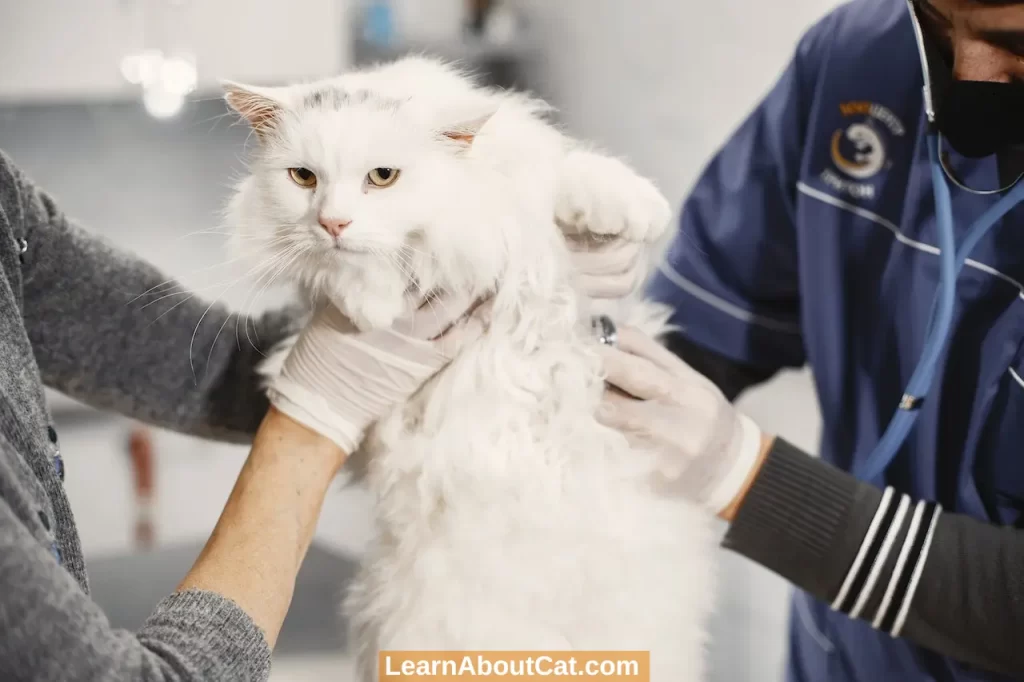
Symptoms include like:
- If it is green, reddish, or yellowish in color, nasal discharge
- Snoring, mouth breathing, and labored breathing.
- Fever
- Eye tears
- Pawing at the face
- Diminished appetite
How to Prevent Allergic Sneezing in Your Cat? Home Remedies
You can try some at-home remedies if your cat suffers from a mild case of sneezing. The following methods can be used to treat your cat’s sneezes at home:

- Start by giving your cat a small amount of the new cat food to observe how she reacts before giving her more.
- Plants and flowers that you believe your cat could be allergic to should be kept out of the cat’s reach.
- If you let your cat outside, keep an eye out for pesticides and plants (like daffodils, cyclamen, etc.) in your yard. Keep your cat inside if you don’t want to expose them to allergic and toxic plant and soil toxins.
- Regularly ventilate your home.
- Air purifiers are a wise alternative to get rid of airborne toxins and clean the air in the house.
- Your cat and you won’t get sick from inhaling the smells and spices in your kitchen if you have a good exhaust fan. Additionally, always close the spice jars before leaving the kitchen.
- Use cat litter with bigger or crystallized granules instead of tiny ones.
- You should avoid using powerful chemicals in your house whether or not your cat has allergies and instead keep them hidden in cupboards or sealed containers when not in use. You may lessen your risk of ingesting poison by doing this.
- Use cotton and lightweight, hygienic materials for your sofas and your cat’s bed. Pillows made of wool and feathers may cause allergies.
- Finding and eliminating the allergen from the environment is the best way to reduce allergy sneeze in cats. However, things aren’t always as simple as they seem.
Find Out Here: Does My Cat Have Allergies or a Cold?
What is the Perfect Temperature for a Cat’s Home?
In extremely cold settings or even below-freezing temps, cats do not contract colds, the flu, or respiratory illnesses. Low temperatures, though, can still impair your cat’s immune system even if they don’t directly cause cat flu. Your cat is also more likely to catch diseases from sick animals if it spends time outside in the cold.

On a gorgeous spring day, our cats will without a doubt sit on the sunniest windowsill, while on a chilly winter night, they will snuggle up in the coziest spots in front of the fireplace, on the heater, and on the warmest areas of the floor.
So what temperature indoors is best for cats? How do you tell whether it’s too chilly for your cat to go outside?
The ideal indoor temperature will vary depending on the breed of your cat (Sphynx cats, for example, need warmer temperatures owing to their lack of fur) and whether they are kittens or adults. But experts advise the optimal house temperatures listed below:
in the winter, 69 to 72 F. (approximately 20.5-22.5 degrees C)
Summer temperatures range from 75 to 78 F. (approximately 24-25.5 degrees C)
If the outdoor temperature is below 45 degrees Fahrenheit, you should keep your cat inside (approximately 7.5 degrees C).
Frequently Asked Questions
When should I worry about my cat sneezing?
When your cat sneezes a few times here and there, it’s most likely just to clear the nasal passages. When sneezing constantly or having other symptoms along with it, you need to take action.
Your cat should be taken to the veterinarian as soon as possible if it stops eating, or develops a cough, wheezing, or other more serious symptoms.
How much sneezing is too much for a cat?
It is normal for your cat to sneeze every now and then, but if the episode persists for several weeks or months, it elevates to a serious issue. It is highly recommended that you bring your cat to the vet in this situation so it can be diagnosed.
Why is my cat sneezing so much all of a sudden?
Sudden and frequent sneezing in cats could be triggered by various factors, such as environmental changes, exposure to allergens, or the presence of a foreign object. If the sneezing persists or is accompanied by other symptoms, it’s recommended to consult with a vet to determine the underlying cause.
Can cats catch a cold or the flu?
Yes, just like people, cats can get the flu or a cold. Upper respiratory infections can range in severity from mild to severe and are brought on by one, two, or even more bacterial and viral agents.
Even though a cat cold resembles a human’s common cold in symptoms, the phrase cat flu really describes a number of infectious upper respiratory diseases.
Why is my indoor cat sneezing?
Cats are usually exposed to pathogens that cause colds by airborne particles brought by other indoor or outdoor pets.
Final Thoughts!
Sneezing is normal for cats, usually caused by simple things like dust or pollen. The most crucial factor, however, is whether there could be an issue with her diet or other house adjustments. But if your cat sneezes a lot or has other problems like runny eyes or seems uncomfortable, it’s important to go to the vet.
Sometimes it could be a sign of a more serious issue like an infection or something stuck in their nose. Treatments vary, and the vet will figure out what’s going on.
If you notice a strange behavior, like watery eyes or sneezing a lot, it might mean something serious, like an infection or something in their nose. Going to the vet is important to get the right treatment. Vets can figure out what’s wrong and help your cat feel better. It’s also good for your health, as your cat’s sneezing could be contagious. Paying attention to your cat’s health and getting help when needed keeps them happy and healthy, just like any good pet owner wants.
Who is Isabella?
My name is Isabella, and I am a dedicated and knowledgeable cat enthusiast. With years of experience caring for cats and a deep love for felines, I made a mission to help other cat lovers navigate the challenges of cat ownership.

